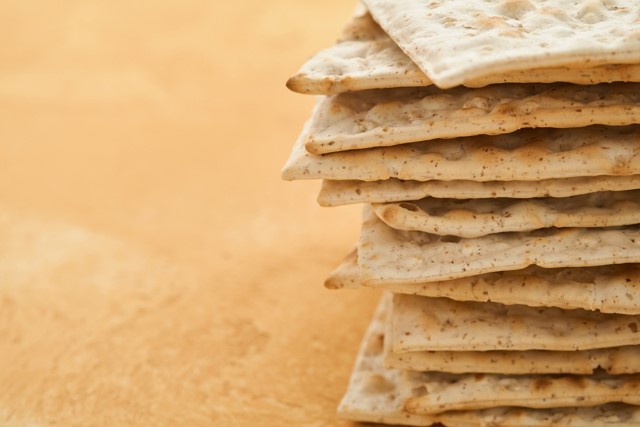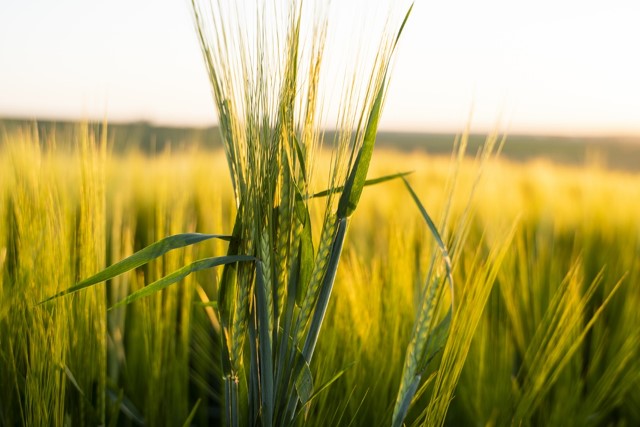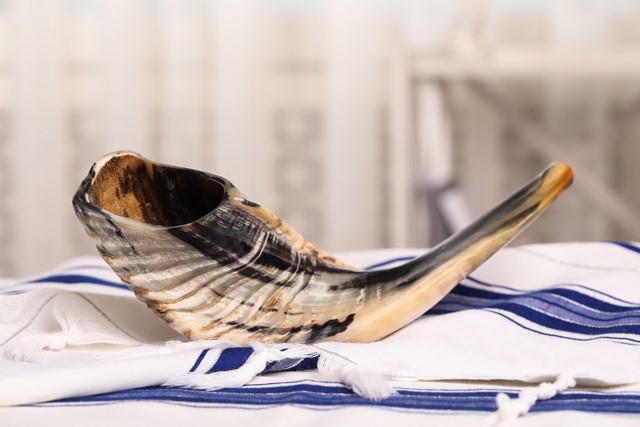
Elohim’s Calendar
Once a great man gave a banquet (feast) and invited many people. When the time came for the banquet (feast), he sent his servant to tell those who had been invited, `Come! Everything is
ready!” But they responded with a chorus of excuses. The first said to him, `I just bought a field, and I have to go out and see it. Please accept my apologies; Another said, `I’ve just bought five yoke of oxen, and I’m on my way to test them out. Please accept my apologies. Still another said, `I have just gotten married, so I can’t come.”
The servant came and reported these things to his master. Then the owner of the house, in a rage, told his servant, `Quick, go out into the streets and alleys of the city; and bring in the poor,
the disfigured, the blind and the crippled; The servant said, `Sir, what you ordered has been done, and there is still room. The master said to the servant, `Go out to the country roads and boundary walls, and insistently
persuade people to come in, so that my house will be full. I tell you, not one of those who were invited will get a taste of my banquet (feast)!”
Luke 14:16-24
In this parable, Elohim is the host of the banquet (feast). In Leviticus 23, Elohim gives us His calendar of feasts. We know that from the first 2 verses…
Yehovah said to Moshe, “Tell the people of Israel. Concerning the feasts (designated times) of Yehovah which you are to proclaim as holy convocations, these are my feasts (designated times).”
In a typical Hebrew year, there are 360 days. Leviticus 23 reveals 70 opportunities in a typical year to have special fellowship with The Almighty and His people. These are times that He has chosen, designating them as “perpetual ordinances, wherever you are.” The “you” refers to the set apart people of Elohim. If that includes you, please keep reading.
The following is a listing of the Feasts of Yehovah, as documented in Leviticus 23. For your reference, we include brief descriptions and the number of times this opportunity comes up in a typical Hebrew calendar year.

The Sabbath Day
51 days per year
Yehovah blessed the seventh day in creation. He ordained it as a day for His people to stop our usual work, and to rest. The Almighty also identified The Sabbath as “a sign” between Him and His people, throughout our generations, so that “[we] may know that [He] is Yehovah who sanctifies us (sets us apart for His special purpose).” (Exodus 31:13)
We believe that the complete meaning of The Sabbath is yet to be seen…
Pesach (Passover)
1 day per year
Pesach comes during the barley harvest in Israel. This is the day our people were freed from slavery in Egypt (which means bondages). People who put lamb’s blood on their doorposts were spared from judgment. Everyone else in Egypt lost their first born child that night.
This is also the date when Yeshua of Nazareth was unjustly killed, crucified by a group of Roman soldiers at the behest of Israel’s religious leaders.
We believe there are more, prophetic fulfilments to come on a future Pesach.


The Feast of Unlevened Bread
7 days per year
Elohim instructed His people to eat unleavened bread for 7 days after Pesach. In fact, He instructs that no leaven be seen among His people during this time. Leaven is a metaphor for bad doctrine, sin and death, the most severe source of uncleanness. We are reminded of our individual responsibility to purge leaven from our lives during this feast. During Unleavened Bread, Yeshua taught His disciples the in-depth message of His ministry. We look for additional fulfilment to come in future Feasts of Unleavened Bread.
We believe that the complete meaning of The Sabbath is yet to be seen…
First Fruits
Integrated into The Feast of Unleavened Bread days
Firstfruits is the day when the High Priest would present a wave offering of the first fruits from the barley harvest. It is also the day we commemorate the resurrection of Yeshua of Nazareth. Firstfruits always comes on the day after the first Sabbath during Unleavened Bread. Please note that Firstfruits does not always fall on the same day as Easter/ Resurrection Sunday. Unlike Firstfruits, these days come on the first Sunday after the full Moon that occurs on or after the spring equinox. Firstfruits and Easter/ Resurrection Sunday are not the same observance; one is commissioned
by Elohim, and one is a tradition of men.


Shavuot (Pentecost)
1 day per year
Shavuot is a celebration of the wheat harvest. On this day, the High Priest would wave 2 loaves of wheat bread before the Most High, on behalf of Israel.
The time of Shavuot must be calculated. Starting on Firstfruits, we are to count seven Sabbaths. The first day after the seventh Sabbath marks the 50 th day after Firstfruits. On Shavuot, we remember the giving of the Mosaic Covenant on Mt. Sinai. There, all of Israel (with foreigners who left Egypt with Israel) accepted the covenant, spoken by the voice of The Almighty.
Shavuot is also the day when the Ruach Hakodesh (Holy Spirit) was given to the followers of Yeshua, waiting in Jerusalem as Yeshua instructed them. It was a spectacular affirmation of our Covenant with Yehovah. Now if the hallah offered as first fruits is holy, so is the whole loaf. And if the root is holy, so are the branches. (Romans 11:16)
We are watching for additional fulfilment/ works of Messiah Yeshua on future occurrences of Shavuot.
Yom Teruah
1 day per year
“Yehovah said to Moshe, "Tell the people of Isra'el, 'In the seventh month, the first of the month
is to be for you a day of complete rest for remembering, a holy convocation announced with blasts on the shofar. Do not do any kind of ordinary work, and bring an offering made by fire to Yehovah.”
Leviticus 23: 23-25
These are the instructions for Yom Teruah, the Day of a “Loud Sound.” It is also known as the Feast of Trumpets. Because Yom Teruah happens on the first day of a Hebrew month, one must be watching to know when that day is here. Fortunately, we get 11 other new months (Rosh Chodesh) to practice being ready for Yom Teruah.
There are many references to a future day in which a heavenly teruah (loud blast) from a trumpet (shofar) will be heard on earth. We are watching for the fuller meaning of Yom Teruah; we expect Yeshua HaMoshiach to do something great on this date, in the near future.


Yom Kippur
1 day per year
On Yom Kippur (Day of Atonement, or Covering), Israel received mercy from Elohim after worshipping the golden calf. In Leviticus 16, we read detailed instructions for the High Priest regarding the Yom Kippur service. Imbedded in the High Priest’s service, we see clear pictures of the work of The Messiah, Yeshua.
Throughout the scriptures, we see descriptions of The Day of The LORD. This will be a day of vengeance
for Yeshua. His wrath will be severe, destroying the wicked institutions of wicked people.
We look for the fulfilment of Yom Kippur; we follow as many of Elohim’s instructions as we are able to
commemorate this Holy time.
Sukkot (with Shemini Atzeret)
8 day per year
“… on the fifteenth day of the seventh month, when you have gathered the produce of the land, you are to observe the festival of Yehovah seven days; the first day is to be a complete rest and the eighth day is to be a complete rest. On the first day you are to take choice fruit, palm fronds, thick branches and river-willows, and celebrate in the presence of Yehovah your Elohim for seven days. You are to observe it as a feast to Yehovah seven days in the year; it is a permanent regulation, generation after generation; keep it in the seventh month…”
Leviticus 23:39-41
Sukkot is observed during the produce harvest in Israel. Also known as the Feast of Tabernacles, Sukkot is an 8-day outdoor celebration before The Creator. We live in temporary structures during Sukkot, so that generation after generation of us will know that Elohim made the people of Israel live in sukkot (temporary structures, booths, huts) when [He] brought [us] out of the land of Egypt.
The joy of Sukkot reminds us of the extreme joy we have to look forward to! We practice Sukkot, knowing that a time is coming when many of us will have to escape from certain death, trusting Elohim to guide and protect us. We practice Sukkot with great excitement, looking for its fulfilment in Messiah Yeshua!
“Once a great man gave a banquet (feast) and invited many people. Will you plan to be there?”

